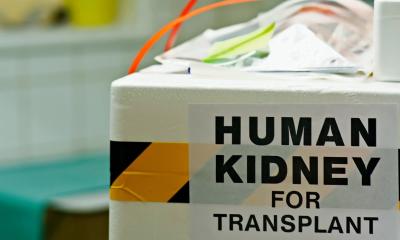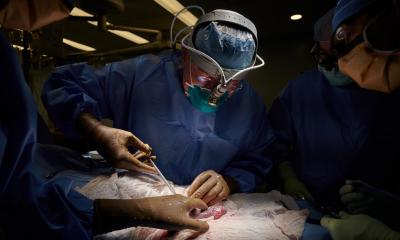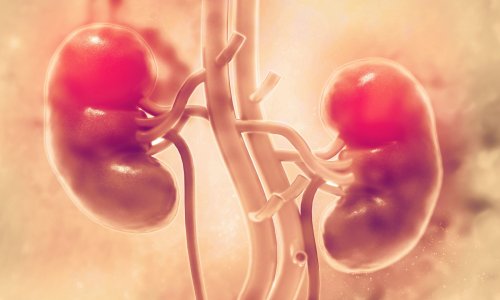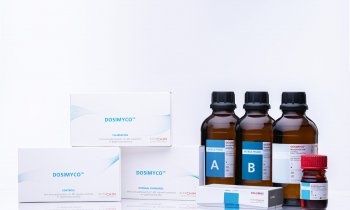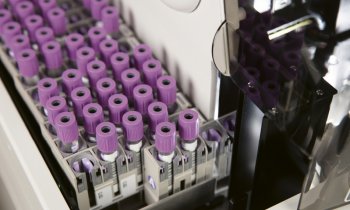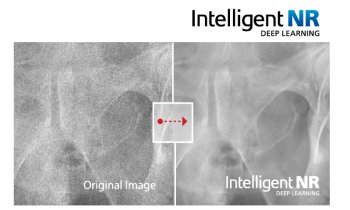News • "Umbrella" trial
Urine test detects acute kidney transplant rejection
Early non-invasive detection of kidney rejection after transplantation was the central aim of a collaboration between Prof. Dr. Bernhard Banas, Chairman of Nephrology at the University Hospital Regensburg (UKR) and the medical diagnostics company, numares.
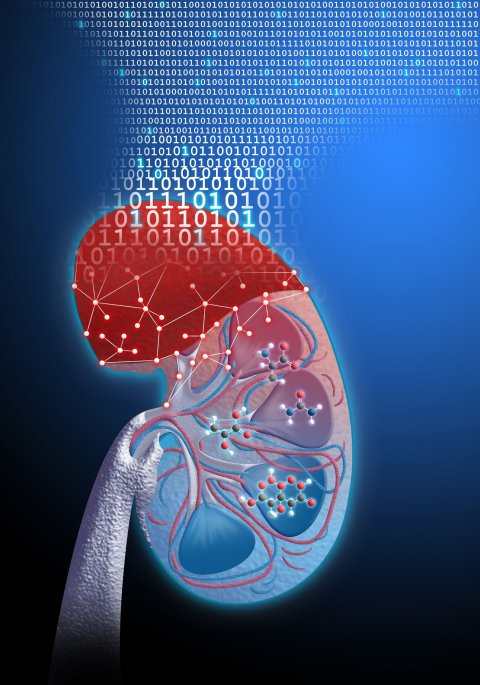
The results of their joint clinical trial “UMBRELLA” were just published in EBioMedicine and presented at the American Society of Nephrology’s “Kidney Week” in Washington DC.
Last year, in partnership, UKR and numares published a joint method article describing a test for graft rejection based on clinical samples from UKR and the unique machine learning biomarker discovery platform pioneered by numares. Urine samples from patients with and without rejection were measured with nuclear magnetic resonance spectroscopy (NMR) and subsequently analyzed by machine learning algorithms in order to identify a metabolite constellation that facilitates diagnostic decisions.
The current publication presented the results of a clinical validation study of the metabolite constellation, marketed by numares as Axinon renalTX-Score. The researchers analyzed almost 1,000 urine samples from 109 patients, which were collected over a period of one year after kidney transplantation. Afterwards, they were evaluated against kidney biopsies. The biomarker constellation was able to detect rejection up to one week prior to clinical symptoms in some cases. Overall, the study established a promising diagnostic performance.

“We are pleased to publish the results of our work and to present them in Washington DC. We reached a true milestone on the way to a completely new rejection diagnostics and hope to successfully bring the renalTX-test into clinical routine practice together with numares”, says Prof. Dr. Banas, Chairman of the Transplantation Center Regensburg and President of the German Transplantation Society. Dr. Miriam Banas, private lecturer and lead author of the study adds: “numares’ allograft rejection test has several advantages. First, it allows close non-invasive kidney allograft monitoring. We get an early-warning system and can react quickly, e.g. by optimizing the therapy. Second, we naturally try to reduce the number of unnecessary biopsies with appropriate diagnostic support." Axinon renalTX-Score is available in the European Union as a CE-marked in-vitro test for use in clinical routine.
"We would like to thank the UKR and Professor Banas and his team for the successful cooperation", says Dr. Philipp Pagel, Chief Medical Officer of numares. "It is important for us to give a positive example of a cooperation between hospitals and industry. Regensburg is a great location for this kind of collaborative work.” numares was founded in 2004 as a spinoff from the University of Regensburg and is located in BioPark, just one kilometer away from the UKR.
Based on the success of this collaborative partnership, UKR and numares have already taken the next step: The PARASOL study is a pan-European, multicentric, prospective observational study that evaluates the test in an extended setting. In addition to Regensburg, the partners participating in the study are located in Vienna, Prague, Grenoble and Barcelona. By the end of 2019, already more than 1,000 patients will be recruited. Initial results are expected in the first quarter of 2020.
Source: numares
11.11.2019



